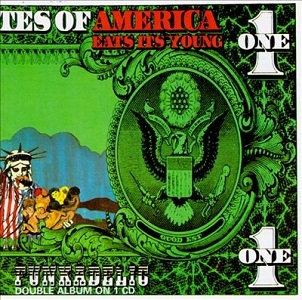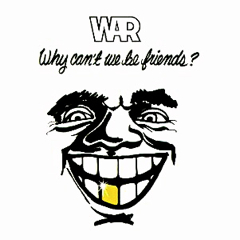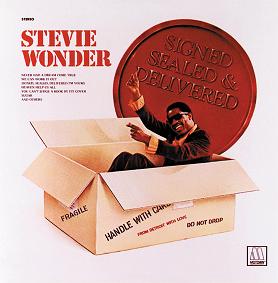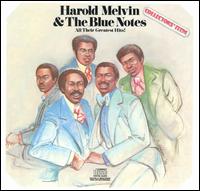
America Eats Its Young is the fourth album by Funkadelic, released in May 1972. This was the first album to include the whole of the House Guests, including Bootsy Collins, Catfish Collins, Chicken Gunnels, Rob McCollough and Kash Waddy. It also features the Plainfield-based band U.S., which consisted of guitarist Garry Shider and bassist Cordell Mosson, on most of the tracks. Unlike previous Funkadelic albums, America Eats Its Young was recorded in Toronto, Ontario, Canada, and in the UK. The original vinyl version contained a poster illustrated by Cathy Abel. The bottom of the poster features the first widespread appearance of the Funkadelic logo, which would appear on the cover of their next album Cosmic Slop.

Why Can't We Be Friends? is the seventh studio album by American band War, released on June 16, 1975 by United Artists Records. Two singles from the album were released: the title track backed with "In Mazatlan", and "Low Rider" backed with "So". Both A-sides were nominated for the Grammy Awards of 1976.
Harold Melvin & the Blue Notes was an American soul and R&B vocal group. One of the most popular Philadelphia soul groups of the 1970s, the group's repertoire included soul, R&B, doo-wop, and disco. Founded in Philadelphia, Pennsylvania, in the middle of the 1950s as The Charlemagnes, the group is most noted for several hits on Gamble and Huff's Philadelphia International label between 1972 and 1976, although they performed and recorded until Melvin's death in 1997. Despite group founder and original lead singer Harold Melvin's top billing, the Blue Notes' most famous member was Teddy Pendergrass, their lead singer during the successful years at Philadelphia International. The remaining members of the Blue Notes have reunited for Soul Train Cruises in 2013, 2015, and 2017.

The Trammps are an American disco and soul band, who were based in Philadelphia and were one of the first disco bands.

Killer is the fourth studio album by American rock band Alice Cooper, released in November 1971 by Warner Bros. Records. The album peaked at No. 21 on the Billboard 200 album chart, and the two singles "Under My Wheels" and "Be My Lover" made the Billboard Hot 100 chart.

The Stylistics is the debut album by American R&B group the Stylistics, released in November 1971 on the Avco record label. It was produced by Thom Bell and recorded at Sigma Sound Studios in Philadelphia. The album has been called "a sweet soul landmark."

Wake Up Everybody is an album released by Harold Melvin & the Blue Notes on the Philadelphia International record label in November 1975. It was produced by Kenneth Gamble & Leon Huff. This would be the last album to include Teddy Pendergrass before he left the group for a solo career.

Signed, Sealed & Delivered is the 12th studio album by American recording artist Stevie Wonder, released on August 7, 1970, by Tamla Records. The album featured four hits that hit the Billboard Hot 100: "Signed, Sealed, Delivered I'm Yours" (#3), "Heaven Help Us All" (#9), "Never Had a Dream Come True" (#26) and Wonder's cover of The Beatles' "We Can Work It Out" (#13). The album hit #25 on the Billboard Pop Albums chart as well as #7 on the R&B Albums chart.

"Hope That We Can Be Together Soon is a song written by Kenneth Gamble and Leon Huff, which was originally recorded by Dusty Springfield as "Let's Get Together Soon" for her 1970 album, A Brand New Me. The track was produced by Gamble and Huff.

Black & Blue is an album released by Harold Melvin & the Blue Notes on the Philadelphia International record label in September 1973. It was produced by Kenneth Gamble & Leon Huff.

I Miss You is the debut album by Harold Melvin & the Blue Notes, released on Philadelphia International in August 25, 1972. Produced by Kenneth Gamble & Leon Huff, the album was recorded at Sigma Sound Studios in Philadelphia.
Gil Saunders was an American soul singer who came to fame as lead singer with Harold Melvin & the Blue Notes.

"Bad Luck" is a song recorded by American vocal group Harold Melvin & the Blue Notes from their album To Be True. Released as a single in 1975 by Philadelphia International Records, the song was written by Victor Carstarphen, Gene McFadden, and John Whitehead and produced by Gamble and Huff, with MFSB providing instrumentals. The single was number one on the Billboard Disco Action chart for eleven weeks, also peaking at no. 4 on Hot Soul Singles and no. 15 on the Hot 100. With an unusually loud hi-hat by session drummer Earl Young, "Bad Luck" is considered a signature disco song.

Platinum Jazz is a double album, the ninth studio album by War, released on Blue Note Records in July 1977.
Lloyd Parks is an American R&B/soul singer born in Philadelphia, Pennsylvania, United States. He is an original member of the Philadelphia International Records group, Harold Melvin & the Blue Notes. Lloyd is noted for his high tenor and falsetto vocal leads and harmonies. He is also a founding member of the Epsilons who backed Arthur Conley on his Atco Records hit single "Sweet Soul Music".
Bernard Wilson was a second tenor and baritone R&B, funk and soul music vocalist, who was a member of Harold Melvin & the Blue Notes, and thus helped to define the “Sound of Philadelphia” in the 1970s.

When the Tingle Becomes a Chill is the twenty-seventh solo studio album by American country music singer-songwriter Loretta Lynn. It was released on February 2, 1976, by MCA Records.

Making Music is the fourth studio album by American soul singer-songwriter and producer Bill Withers, released in 1975. It was also released in the UK as Making Friends.

Collectors' Item: All Their Greatest Hits! is a compilation album released by Harold Melvin & the Blue Notes on the Philadelphia International record label in July 1976. It includes all of their biggest hits with the label recorded between 1972 and 1975, such as "If You Don't Know Me by Now", "The Love I Lost", Bad Luck", and "Wake Up Everybody". Many of the songs were in extended versions. The album, produced by Gamble & Huff, sold over a million in the USA. The UK album release also included the track, "Satisfaction Guaranteed" which had been a big hit for the group there.

Reaching for the World is the fifth album by American vocal group Harold Melvin & the Blue Notes. This, their debut album for the ABC Records label, was recorded in 1976 and released in 1977. This is the first album without Teddy Pendergrass, David Ebo was his replacement. Also joining the Blue Notes were Dwight Johnson and William Spratley. On release it reached #56 in the US Billboard 200 and #15 on the US R&B Charts. The lead single was "Reaching For The World" which reached #74 on the US Billboard 100 and #6 on the US R&B Charts. Then "After You Love Me, Why Do You Leave Me", featuring Sharon Paige, reached #102 in the US Billboard 100 and #15 on the US R&B Charts. Hostage Parts 1&2 was chosen as the final single, but failed to chart.















